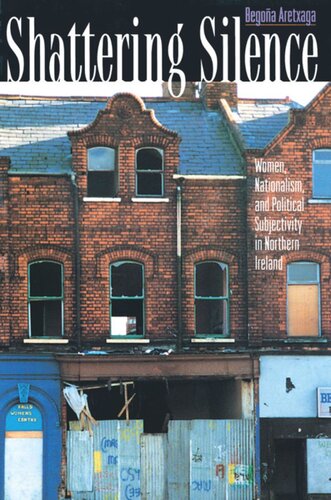

Most ebook files are in PDF format, so you can easily read them using various software such as Foxit Reader or directly on the Google Chrome browser.
Some ebook files are released by publishers in other formats such as .awz, .mobi, .epub, .fb2, etc. You may need to install specific software to read these formats on mobile/PC, such as Calibre.
Please read the tutorial at this link: https://ebookbell.com/faq
We offer FREE conversion to the popular formats you request; however, this may take some time. Therefore, right after payment, please email us, and we will try to provide the service as quickly as possible.
For some exceptional file formats or broken links (if any), please refrain from opening any disputes. Instead, email us first, and we will try to assist within a maximum of 6 hours.
EbookBell Team

0.0
0 reviewsThis book, the first feminist ethnography of the violence in Northern Ireland, is an analysis of a political conflict through the lens of gender. The case in point is the working-class Catholic resistance to British rule in Northern Ireland. During the 1970s women in Catholic/nationalist districts of Belfast organized themselves into street committees and led popular forms of resistance against the policies of the government of Northern Ireland and, after its demise, against those of the British. In the abundant literature on the conflict, however, the political tactics of nationalist women have passed virtually unnoticed. Begoña Aretxaga argues here that these hitherto invisible practices were an integral part of the social dynamic of the conflict and had important implications for the broader organization of nationalist forms of resistance and gender relationships.
Combining interpretative anthropology and poststructuralist feminist theory, Aretxaga contributes not only to anthropology and feminist studies but also to research on ethnic and social conflict by showing the gendered constitution of political violence. She goes further than asserting that violence affects men and women differently by arguing that the manners in which violence is gendered are not fixed but constantly shifting, depending on the contingencies of history, social class, and ethnic identity. Thus any attempt at subverting gender inequality is necessarily colored by other dimensions of political experience.